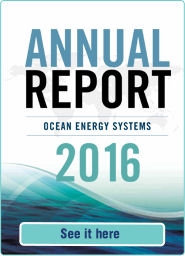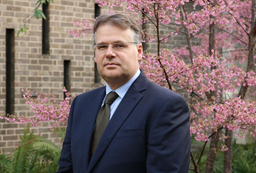
OES Annual report 2016 online
The new annual report also presents in-depth interviews with five key players in the open sea testing of ocean energy technologies (USA, Canada, UK, Spain and Japan). Commenting on the current position of the sector, Samantha Quinn of the USA’s Northwest National Marine Renewable Energy Center (NNMREC) said, “By building more facilities, giving more opportunities for developers around the world to test in a variety of sea-states, the industry will see more improvement and the potential for a commercial industry sooner than projected.” Oliver Wragg of the European Marine Energy Centre (EMEC) said, “Only by proving performance in a real sea environment can developers truly progress to commercial projects. Verified performance data from open-water testing will continue to build confidence amongst the investment community and help developers bring their concepts to a global clean energy market.” Tony Wright of FORCE in Canada, commenting on key lessons learned from the operation of an open sea test center, said, “There must be a concerted effort to collect, interpret, and share data related to any environmental effects.” Yago Torre-Enciso of Bimep in Spain adds that, “Test centers help developers to save money and time.” Takaaki Morita, speaking on behalf of Nagasaki AMEC in Japan, states that they are “planning to provide the opportunity for the developer to test cost effective methods of installation and O&M.” Alongside their ‘International Vision for Ocean Energy’, launched earlier this year, the OES 2016 Annual Report highlights examples where exchange of ideas between industries and nations has led to benefits in the development, installation, operation and maintenance of prototypes, as well as on services and streamlining procedures. This reflects some of the key benefits of joining OES, namely global perspective, knowledge sharing between members and access to advanced innovation teams around the world. Mr José Luis Villate, OES Chairman for the past 4 years, said, “2016 will probably be seen as a take-off year for ocean energy: while several devices were being deployed, some governments set up firm policies to support ocean energy.”
The annual report report is available online:
ABOUT THE OES
|
||||||||
|
||||||||
|
|
||||||||
|
|
||||||||

